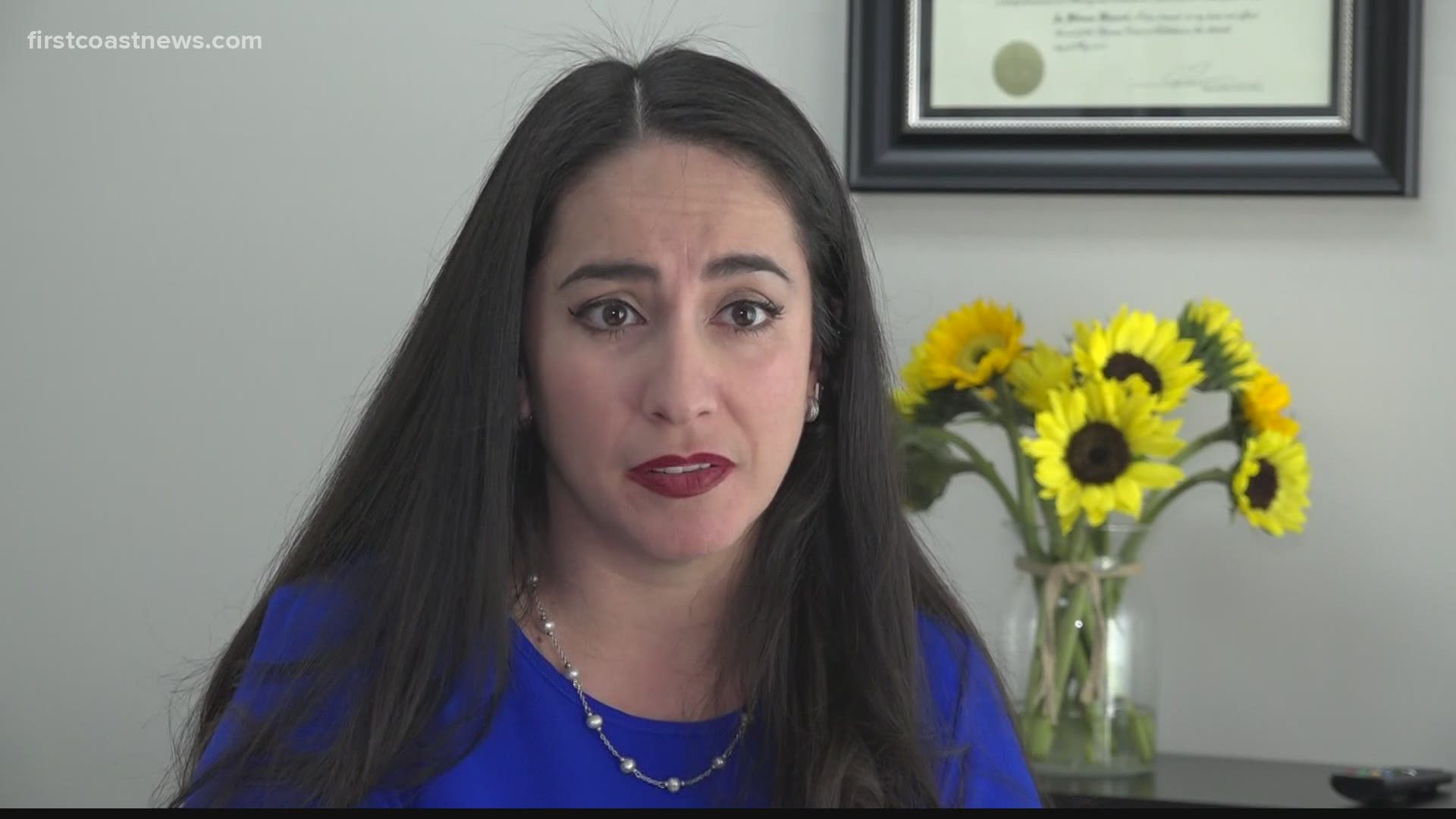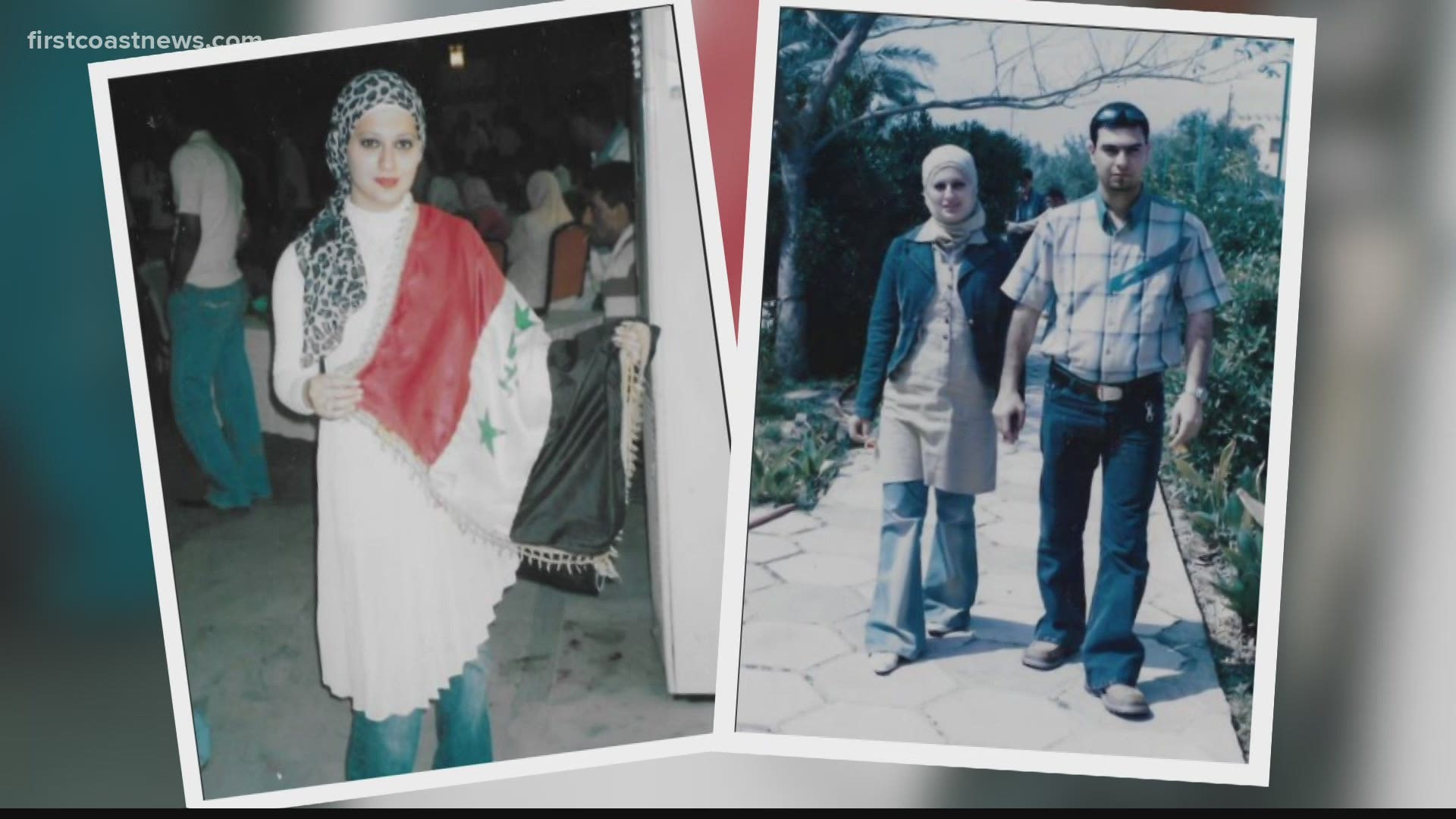A large chunk of President Joe Biden's first moves have to do with immigration.
Biden is taking a sharp turn from the last four years and it's impacting Floridians. Biden says he'll preserve the Deferred Action for Childhood Arrivals, or DACA, program, which shields children brought to the U.S. illegally from deportation.
Many DACA "Dreamers" are said to have been holding their breath for years, not knowing what might happen with DACA. Jacksonville Immigration Attorney Andrea Reyes says many of them are not willing to let out that breath just yet.
"You grow up here, you go to high school here," Reyes said. "Now that they have DACA they're going to college, they're buying houses, they have careers, they've started businesses, they've gotten married, they have kids. They're established here, their lives are here. To out of nowhere that be taken away from them, like the rug being taken out from underneath of them, was very scary."
Reyes represents more than 20 of almost 25,000 DACA recipients in Florida. She says the past four years Dreamers have been "living in fear of their future" but even with big moves from the president on 'day one,' they're still hesitant.
"There's that hesitation of 'let's see what happens,'" she said.
The Center for American Progress reports more than 200,000 DACA recipients are working on the frontlines of the pandemic. This includes more than 6,000 people in Florida.
Reyes says Biden's pledge to support DACA will ideally make it easier for people to get citizenship. They still have to go through the normal process.
"They have a conditional status for about five years and then after that, they'll be able to apply for their green card," said Reyes. "They have to go through the same process as everybody else. But [Biden] is reducing it from a 13-year process to ideally an eight-year process."
What could take less or more than eight years is leaving the fear behind.
"Having to look over their shoulder and wonder 'what is the next day gonna bring?'" said Reyes.
Another action Biden has taken is removing the travel ban from mostly Muslim-majority countries. Basma Alawee, a Jacksonville woman who is a former refugee from Baghdad, says the ban was especially difficult to explain to her two daughters.
Born during the Iran-Iraq War, Alawee lived through violence and suffering until she was eventually able to escape. Now she and her family have called Jacksonville home for more than a decade. It's the only home her daughters have ever known which made the ban hard for them to understand.
"They were confused and were not sure if this is really their home because part of their identity is actually not welcome in this country," she said.
Now that the ban has been overturned there is singing in her home.
"Singing this is your land and this is my land!" said Alawee.
Alawee says now it feels they are truly welcome again.
"We feel this is our home again," Alawee said.
Although the ban has ended, islamophobia has not. Alawee says her work, especially as a refugee organizer with the Florida Immigrant Coalition, is far from over.
"We need to make sure that there is a bold policy that supports all of Floridians," Alawee said. "Everyone who lives in Florida and call Florida home should have the same right. We are paying taxes, we are contributing to this new home. We could make sure that doesn't just reflect nationally but also locally to hold the local legislature accountable, really make us all feel welcome home and make Jacksonville home to everyone."
Hear more stories from refugees at a storytelling exhibit in February. Alawee is working on this with the Cultural Council of Greater Jacksonville. They will release more information about the exhibit on Monday here.


